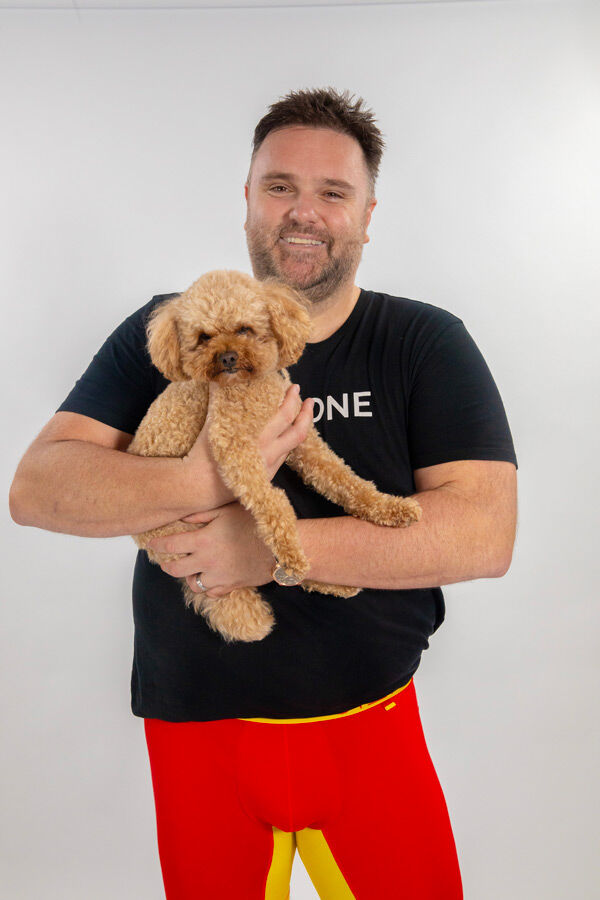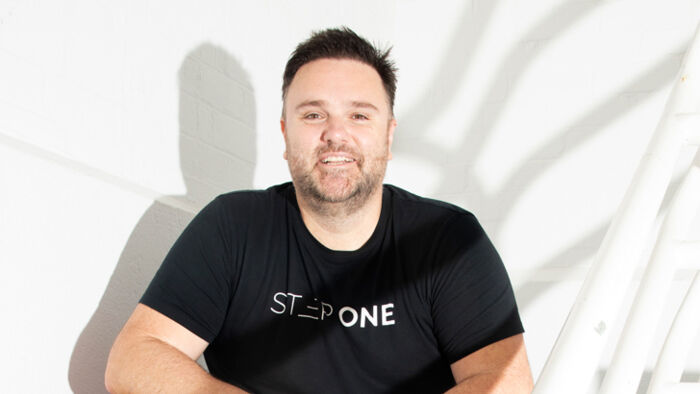Step One founder Greg Taylor on boxers, business and big ideas
By Alan Deans
While at high school in Adelaide, Step One founder Greg Taylor hankered to play cricket.
His dream was to represent Australia, but after the South Australian Sports Institute visited one day to check out the school's talent, he received three offers to join its weightlifting, baseball or rowing programs.
His mother found the offers crumpled in the bin and urged him to try rowing.
Impressing the talent scouts with his power in the flimsy skiff, Taylor was being offered a scholarship.
"I gave it a go, and just fell in love with it," he recalls. "I was 15, and my parents would drive me every morning to training at West Lakes [a suburb of Adelaide]."
His first business
Rowing taught him discipline, a work ethic and how to organise his life better.
He continued the sport at university, where he trained 14 times a week, paying his way by selling chocolate biscuits to other athletes.
The long hours meant that he sometimes fell asleep in lectures, but he still graduated with a business degree in accounting.
Bucking the stereotype of the boring accountant, Taylor moved to Sydney with the idea of building a car sales app, which he named Better Deal.
His proposal was for people to list details of what they wanted and owners would pitch cars they had for sale.
"It was a reverse auction for cars, and we had to get dealers on board," he says. "We launched the app and got a tiny article in one of the newspapers. I woke up and had 30 missed calls."
Among them were television programs A Current Affair and Today Tonight. The rush of traffic took the app down.
Car dealers complained to the car makers, Taylor says, and threatened him with litigation because the app could hurt sales through their dealers. His solution was to sell the app.
Next up was advertisements printed on disposable coffee cups. With funds saved from the first venture, Taylor developed an online loyalty card.
People scanned their QR code in a cafe to earn a free cup for every 10 they bought. He says that venture also quickly took off, gaining 500,000 users. But it ran up against cafes, which couldn't make any money from it and had no incentive to promote it.
Undaunted, he then launched a bar tab app called Clip. It was aimed at those who drink or eat at pubs. Some large hotel groups such as ALH signed up, but this time Taylor was taking just 1% of each sale and couldn't make it pay.
He recalls: "I had about five grand left. I was sleeping at a mate's place. I either had to move home, to my parents in Bendigo, or ... take the couch."
The idea for Step One
Soon after, he met his wife-to-be, Sophie, and came up with the notion of Step One, which has now made his fortune.
"We went to New Zealand and were hiking. I have big, big legs from my rowing days, and I was chafing from wearing bike shorts. I used creams, but that didn't solve it."
If existing underwear brands couldn't fix the issue, Taylor decided he would have to make his own. "I would make the best underwear, and they would stop chafing."
The people who had previously backed him, however, wouldn't help. "I couldn't get one investor. They said I had lost my marbles."
Carrying a card in his wallet accessing his life savings of $15,000, along with samples of his underwear, he flew to the giant Guangzhou trade fair in China.
He told vendors there that he wanted to buy 5000 pairs, but they turned up their noses. He was advised to go to the smaller, northern city of Chengjiao, where businesses could look after him. There, a clothing maker helped to design a solution for chafing.
An order was filled for 5000 pairs - all that he could afford.

'You've got to back yourself'
A friend worked on a video promotion, which was uploaded to Facebook, and it garnered a large number of orders. Leveraging the demand by committing to new manufacturing orders, Taylor says he made sales of $1.5 million in the first year.
"You've got to back yourself. You've got to believe, 'I'll sell these. I know I'll do it', otherwise I'll get left behind. I would grow so slowly that the idea wouldn't take off. Someone would run over me."
The orders grew from 20,000 pairs to 40,000, and then 60,000. Taylor says that during the first two-and-half years, he was always out of stock. Sales were worth $1.5 million in the first year and $2.5 million in the second.
Sales were expanding also in the UK, and orders from Chinese factories reached 100,000. Step One's cash flow was rapidly gaining in scale.
However, just as new designs were released and TV ads made, COVID struck.
As it turned out, people bought more and more clothing online, including underwear. Advertising rates fell, giving Taylor cheaper deals. Shoppers turned in droves to online buying.
"I do believe very much that at some point in everyone's life, the stars will align if you give it enough goes. It's not for the faint hearted."
Step One undies were being sold every eight seconds.
Step One goes public
A decision was made then to raise $90 million in capital by listing the company's shares on the ASX when the strong sharemarket debut of online cosmetics company Adore Beauty was brought to Taylor's attention. Investors initially traded Step One's shares at $1.53 each, but they quickly went to $3 - valuing the company at around $600 million.
Taylor says that was too high. A taxation issue arose, war erupted in Ukraine and interest rates started to rise. The company's earnings projections were missed and investors cut its share value in half.
Taylor says he had to move out of home when his wife found she had contracted COVID.
"You have got to be strong. I've been sued. I've been broke. I've been rich. I've been sick. I've been healthy. I've been through all of these things. But you have to stick with it. If you believe in what you are doing, and you solve a problem, a functional problem for people, you market it well and you make a good product ... that's how a business works."
But Taylor took the setbacks personally. He believed that he had let down many people. In his mind, he initially thought that he was fine. But not so. "No one wants to talk to you. Everyone hates you."
The money for the capital raising had already been paid into the bank, so there was no going back.
From the highs to the lows
"You've gone from this euphoric high to an horrendous low, where people are screaming at you. And fair enough, right? The buck stops with me."
While he was determined to still meet the projections made in the company's prospectus, that was not possible.
"The only thing you can do is get back on the horse and just work, work and work. We got [down] to 22c per share, and our market capitalisation was less than our cash at bank plus our assets. I felt this was still a good business. We had some hiccups, but we would get there.
"Then, a year ago, we were up 200% [in share price], and this morning we were up 260%. We have released a women's product, and we've done everything we said that we would do. Our profit was up 300% last year, which was great.
"We're slowly getting people's trust back. You need to do that, however, over a period of time. People don't see the stress that causes, and the care and consideration you have for their money.
"We will continue doing what we do. I don't feel like I come to work, any day. It's a joy to come here. It's a joy with our team and what we do. When things are going well, it helps."
Get stories like this in our newsletters.



